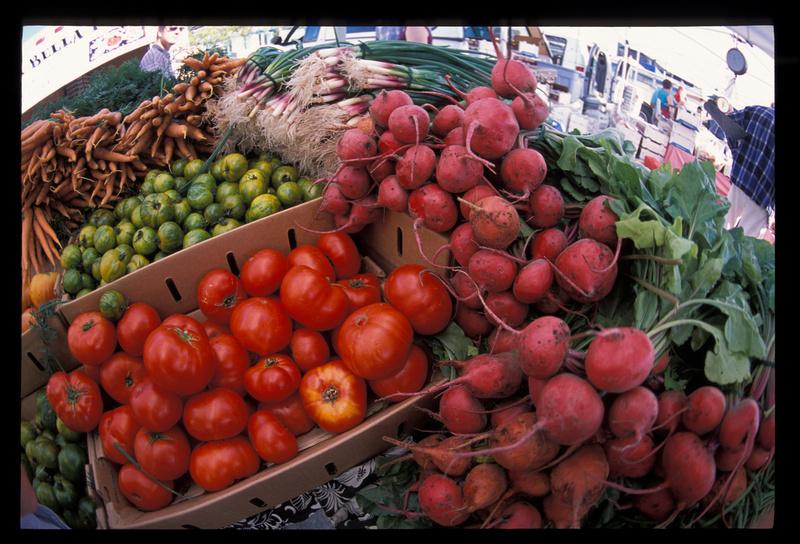Showing 281-290 of 355 publications
Updated: March 31, 2022
Understanding Agricultural Liability: Maryland’s Right-to-Farm Law Can Limit Liability for Maryland Farm, Commercial Fishing, and Seafood Operators (FS-973)
Many individuals moving into agricultural areas in Maryland have no farm backgrounds and little understanding of agricultural operations. The same is true of commercial fishing and seafood operations in Maryland. Once there, the new residents may find the noises, insects, farm equipment on the roads, smells, and other characteristics of agricultural and commercial seafood life unexpected and objectionable. While neighbors should consider working together and developing open lines of communication to find solutions, in some cases, this cooperative approach may not work. In response, Maryland introduced a Right-to-Farm (RTF) law in 1981. All 50 states have RTF laws which typically shield agricultural activities from complaining nonfarm neighbors by limiting the scope of and providing a defense for nuisance actions brought against farms and other agricultural operations. In 2014, Maryland extended these protections to commercial seafood operations and watermen. Understanding Agricultural Liability: Maryland’s Right-to-Farm Law Can Limit Liability for Maryland Farm, Commercial Fishing, and Seafood Operators by Goeringer and Lynch (FS-973, Published 2017) educates producers on the issues associated with Maryland's Right-to-Farm law.
Updated: February 17, 2021
Enhancing the Community Supported Agriculture Marketing Model in Maryland
With just 2 percent of the American population actively engaged in producing food, CSA is a growing social and agricultural movement that offers a path to farm preservation, stability and profitability, at the same time it connects people with their food supply and builds community. CSA links the source of food (the farm and farmer) to the destination of the food (the consumer).

Updated: February 4, 2021
Turning on Your Specialty Food Business
You need to formulate a business plan and consider how your business will be organized.
Updated: March 29, 2021
Helping Your Child Become Money Smart (FS-962)
Children, teens, and young adults learn their money management skills from a variety of sources, such as school, media, and peers. But parents have the greatest influence on their children’s financial decisions. In fact, 56 percent of young adults say they rely on their parents for financial guidance. Money management must be learned and practiced. It’s important for children to learn about the value of money before they actually have any. Start early in your child’s life to instill habits and build on them as your child grows and learns.
Updated: January 12, 2021
High Tunnel Production: The Basics for Success and Three Case Studies (FS-957)
This publication summarizes a project that took place in the Mid-Atlantic region, but high tunnels can be successfully used in a wide variety of climates and locations. They are especially profitable when located close to good markets, such as urban and peri-urban areas.
Updated: January 9, 2021
Fall Soil Nitrate Test (FSNT) (EBR-15)
Recent research has demonstrated that winter wheat and barley grain yields and economic return to fertilizer applications are not reliably improved by a fall nitrogen application when an adequate amount of nitrate already exists in the soil. Regulations effective October 2012 require that farmers who plant wheat and barley for grain production must test for soil nitrate concentration before they may apply nitrogen in fall.
Updated: January 8, 2021
Directory of Maryland Firewood Dealers (FS-941)
This directory was developed from a January 2013 survey of firewood dealers that serve Maryland residents. No claims are made regarding the service or products provided. To avoid the spread of pests, decrease the environmental impact, and save money on delivery, it is best to buy firewood locally. We hope you will find the list below helpful as you look for a trustworthy dealer in your area. Firewood must be sold by the cord or by fraction of the cord as regulated by the Maryland Department of Weights and Measures. Beware of scammers – a true cord is 4’ x 4’ x 8’ when stacked.
Updated: January 7, 2021
Clickers: Voice with Anonymity -- Implications for Research (EBR-16)
Clickers are a relatively new technology, particularly within the realm of Cooperative Extension, community groups and university classrooms. Officially known as “audience response systems,” these handheld devices are linked to Turning Point software that allows an audience to “click” an answer to a particular question. All participants’ answers are displayed on the screen for everyone to view. Beyond the advantage of audience viewing and anonymous polling, this technique preserves the responses as research data for analysis with additional software.
Updated: January 6, 2021
Budgeting to Acquire Savings: A 3-Step Approach for Community Educators to Teach Limited Income Consumers (FS-958)
This publication revisits traditional household budgeting discussions in economics textbooks during 1970 and 1980; notably, Paul Samuelson (1976) to derive a basic framework, a 3-step approach for community educators to teach limited income consumers how to budget their incomes. This basic framework construes budgeting in a narrow sense that enable limited income consumers to Estimate, Evaluate and Allocate income to goods and services with the intention to acquire savings.
Updated: January 6, 2021
Black Vine Weevil-Controlling a Major Nursery and Landscape Pest (FS-805)
The black vine weevil is a widespread, entrenched pest in many nurseries in Maryland. Once it is introduced into a production nursery, BVW is extremely difficult to eliminate. While foliar damage caused by adult weevils is a cosmetic concern, larvae of the black vine weevil cause serious root injury and girdling of azaleas, rhododendrons, yews, and many conifers.